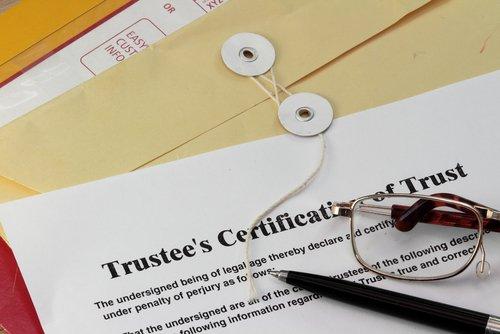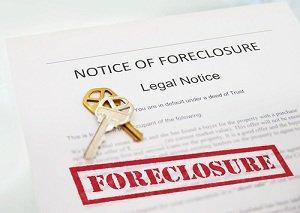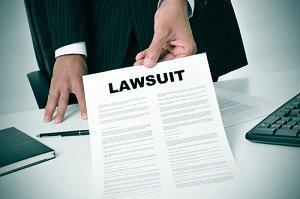Recent Blog Posts
Punitive Damages in Illinois Personal Injury Cases

When you or a loved one has been injured or if a loved one has been killed in an accident caused by another, you are entitled to compensation for your losses. Ordinarily, a plaintiff in a personal injury or wrongful death action is entitled to compensatory damages, which are designed to compensate for actual losses suffered as a result of the injury. Compensatory damages may cover losses such as medical bills, lost income, emotional distress, loss of consortium, and pain and suffering.
Punitive damages, on the other hand, do not compensate the plaintiff for his or her losses. Instead, they are designed to punish the defendant for causing the plaintiff’s injuries and serve as a deterrent both to the defendant and others from engaging in such actions again. Recovering Punitive Damages In order to recover punitive damages in Illinois, the plaintiff must show that the injuries were caused by more than merely an accident. Punitive damages will only be awarded if the plaintiff can prove, by a preponderance of the evidence, that the defendant’s actions were the result of:
Using Special Needs Trusts to Protect SSI and Medicaid Eligibility
 If you are caring for a child with a disability, you have no doubt worried about how your child’s needs will be met following your death, particularly if your child receives Medicaid or SSI. These benefits have strict income eligibility guidelines, and a direct receipt of money would result in the loss of benefits until the inheritance was spent down below the income limits. But without your support, your child will have no money to pay for uncovered medical expenses, recreation or even basic living necessities. How can you protect your child’s eligibility for these benefits but at the same time ensure his life will be enjoyable? Ultimately, this can be achieved by leaving his share of your estate to a third-party special needs trust.
If you are caring for a child with a disability, you have no doubt worried about how your child’s needs will be met following your death, particularly if your child receives Medicaid or SSI. These benefits have strict income eligibility guidelines, and a direct receipt of money would result in the loss of benefits until the inheritance was spent down below the income limits. But without your support, your child will have no money to pay for uncovered medical expenses, recreation or even basic living necessities. How can you protect your child’s eligibility for these benefits but at the same time ensure his life will be enjoyable? Ultimately, this can be achieved by leaving his share of your estate to a third-party special needs trust.
Requirements for Third-Party Supplemental Needs Trust
A trust is an agreement between the person who creates and funds the trust (the trustor) and the person who manages the trust (the trustee). The trustee is responsible for managing the trust’s assets, which can include a mix of property such as cash, real estate, or investment accounts, for the benefit of the trust beneficiary. A third-party special needs trust, also called a supplemental needs trust or SNT, is created by someone other than the Medicaid or SSI recipient to hold assets left to the recipient as part of an inheritance.
Upfront Fees for Loan Modification Illegal in Illinois
 In the wake of the mortgage and foreclosure crisis that has plagued the nation over the past several years, you may have noticed an increase in advertisements for mortgage counseling services. These companies, which target not only homeowners but mortgage bankers and brokers as well, promise to help homeowners who are delinquent on their mortgage modify the loan’s terms to avoid foreclosure. In exchange for these services, homeowners are asked to pay an upfront fee. The only problem? Requiring payment of upfront fees is illegal in Illinois.
In the wake of the mortgage and foreclosure crisis that has plagued the nation over the past several years, you may have noticed an increase in advertisements for mortgage counseling services. These companies, which target not only homeowners but mortgage bankers and brokers as well, promise to help homeowners who are delinquent on their mortgage modify the loan’s terms to avoid foreclosure. In exchange for these services, homeowners are asked to pay an upfront fee. The only problem? Requiring payment of upfront fees is illegal in Illinois.
What is a Loan Modification?
Loan modifications alter the terms of an existing mortgage to make payments more affordable for a homeowner who is in danger of defaulting. In most cases it is done prior to a scheduled rate increase, for example when a five-year adjustable rate mortgage (ARM) is about to end, but can also be done when the mortgage holder’s circumstances have made it impossible for him to continue to make payments under the current terms of the mortgage.
U.S. Supreme Court Set to Decide Affordable Care Act Subsidies
 Earlier this month the United States Supreme Court heard oral arguments in King vs. Burwell, which challenges the payment of insurance subsidies to health insurance enrollees under the Affordable Care Act (ACA).
Earlier this month the United States Supreme Court heard oral arguments in King vs. Burwell, which challenges the payment of insurance subsidies to health insurance enrollees under the Affordable Care Act (ACA).
A Brief Intro to the Affordable Care Act
One of the major provisions of the ACA requires citizens to sign up for health insurance. For individuals who cannot get insurance through an employer, the ACA established healthcare exchanges, which allow people to shop for the insurance plan that best suits their needs and their budget. For those living in states that opted not to create their own healthcare exchange (34 did not), insurance may be purchased on the federal exchange.
To ensure that low to middle-income families can afford to purchase health insurance, the ACA provides subsidies to qualified taxpayers to help pay a portion of their premiums. The amount of the subsidy is based on the insured’s income, age and family size.
Random Sobriety Checkpoints are Legal in Illinois
 The Fourth Amendment to the U.S. Constitution requires police officers to have probable cause before making a traffic stop. In other words, the police can only stop a driver if they have reasonable grounds for pressing charges. For example, if a driver runs a traffic light, drives faster than the posted speed limit or commits any traffic violation leading to an accident, then he can be pulled over by police.
The Fourth Amendment to the U.S. Constitution requires police officers to have probable cause before making a traffic stop. In other words, the police can only stop a driver if they have reasonable grounds for pressing charges. For example, if a driver runs a traffic light, drives faster than the posted speed limit or commits any traffic violation leading to an accident, then he can be pulled over by police.
So if the Constitution requires police to have probable cause before making a traffic stop, does that mean random sobriety checkpoints–where any driver can be stopped, whether or not probable cause exists–are unconstitutional? No. The U.S. Supreme Court has ruled that random checkpoints are an exception to the Fourth Amendment guarantee against unreasonable searches and seizures.
Constitutionality of Random Checkpoints
In 1990, the U.S. Supreme Court held that police sobriety checkpoints do not violate the Fourth Amendment. The case, Michigan Department of State Police v. Sitz, questioned the constitutionality of using random checkpoints to catch drunk drivers. The court balanced the government’s interest in stopping drunk driving with the driver’s Fourth Amendment rights, finding that the constitutionality of random checkpoints tilts in the government’s favor.
Deficiency Judgments and Other Foreclosure Actions
 Millions of Americans have lost their homes to foreclosure since the 2008 subprime mortgage crisis. And for thousands of former homeowners–including in Illinois–the foreclosure nightmare is ongoing.
Millions of Americans have lost their homes to foreclosure since the 2008 subprime mortgage crisis. And for thousands of former homeowners–including in Illinois–the foreclosure nightmare is ongoing.
After a homeowner defaults on his mortgage payments, the lender files a foreclosure action. The house then becomes subject to a foreclosure sale, the proceeds of which go to the bank. However, a foreclosure sale will not necessarily generate enough proceeds to cover the bank’s expenses (i.e., what the homeowner owes to the bank). Such was the norm after the recent housing crisis.
Now, years later, some lenders are pursuing deficiency judgments to recoup borrowers’ old debts. Specifically, the “deficiency” is the difference between how much the property sold for at auction and the amount that was still due on the loan. Lenders can freeze the borrower’s bank account, garnish his wages and seize his assets in order to recover that difference, or at least a portion of it.
Defending Against Employment Discrimination Lawsuits
 Illinois business owners face numerous legal hurdles, including issues related to incorporation, taxes, health insurance and concealed carry permits. However, that does not include one of the most onerous legal hurdles of all–litigation.
Illinois business owners face numerous legal hurdles, including issues related to incorporation, taxes, health insurance and concealed carry permits. However, that does not include one of the most onerous legal hurdles of all–litigation.
Business owners can be sued for a variety of reasons. Employment discrimination is one of the most common examples. If you are a business with at least 15 employees in Illinois, a public contractor or a state agency, then you could become the subject of an employment discrimination lawsuit. Specifically, the law prohibits employers from discriminating against any individual because of:
- Race or color;
- Religion;
- Sex or sexual orientation;
- National origin, ancestry, citizenship status or language;
Disclosure of Major Defects in Real Estate Transactions
 Buying or selling a house can be a stressful process. For those who feel they have found a perfect home, discovering defects after buying the house can sour the dream of homeownership. Similarly, if a seller sells his house and moves on to better prospects, he may find himself pulled back by a buyer suing the seller for defects in the house that the buyer accuses the seller of keeping hidden. In order to avoid these situations, and ensure a smooth transaction, Illinois law has some safeguards in place protecting the seller and buyers.
Buying or selling a house can be a stressful process. For those who feel they have found a perfect home, discovering defects after buying the house can sour the dream of homeownership. Similarly, if a seller sells his house and moves on to better prospects, he may find himself pulled back by a buyer suing the seller for defects in the house that the buyer accuses the seller of keeping hidden. In order to avoid these situations, and ensure a smooth transaction, Illinois law has some safeguards in place protecting the seller and buyers.
Illinois Real Estate Law
In Illinois, the Illinois Real Property Disclosure Act governs the information parties must give or receive when transferring real estate. The Act does not apply to all transfers of property, and includes some exceptions listed in the language of the law.
Injuries Caused by Snow and Ice Removal
 With winter in Illinois comes snow, many times in great amounts that accumulate on the roads, pavements, and pathways. Depending on the amount of snow, and the measures taken to remove it, the buildup of snow can cause various dangers to people walking on sidewalks. Slipping and falling on snow or ice can cause minor to serious injuries, and leave the injured person with medical or other personal bills that he or she may not be able to pay. In Illinois, holding a property owner responsible for injuries sustained in a fall due to snow on the property may be difficult, although not impossible.
With winter in Illinois comes snow, many times in great amounts that accumulate on the roads, pavements, and pathways. Depending on the amount of snow, and the measures taken to remove it, the buildup of snow can cause various dangers to people walking on sidewalks. Slipping and falling on snow or ice can cause minor to serious injuries, and leave the injured person with medical or other personal bills that he or she may not be able to pay. In Illinois, holding a property owner responsible for injuries sustained in a fall due to snow on the property may be difficult, although not impossible.
Law Regarding Snow Removal
Illinois property owners are generally not required to remove snow that naturally accumulates on their property. Therefore, property owners are not liable for injuries caused due to the natural accumulation of snow or ice on their property. However, a property owner can go on to create a situation whereby he or she is liable for the injuries. If a property owner hires someone who negligently removes snow or ice from his or her premises, and therefore creates unnatural accumulations of snow, the property owner becomes liable for injuries caused by this snow. This difference between natural accumulations and unnatural accumulations should encourage property owners to make sure they are careful in who they hire to remove the snow from their property.
Powers of Attorney and Estate Planning
 Thinking about the future and what can happen in case of illness, disability, or incapacity is not something that everyone likes to do. However, planning for these situations can be a great way to be prepared and to ensure that your wishes for your future finances and health care are honored. One way to accomplish this in Illinois is through the creation of a power of attorney (POA). A POA can be beneficial in most situations. However, it is limited in terms of planning for situations after death. For after death planning, there are other estate planning methods that are better suited to accomplish that long term goal.
Thinking about the future and what can happen in case of illness, disability, or incapacity is not something that everyone likes to do. However, planning for these situations can be a great way to be prepared and to ensure that your wishes for your future finances and health care are honored. One way to accomplish this in Illinois is through the creation of a power of attorney (POA). A POA can be beneficial in most situations. However, it is limited in terms of planning for situations after death. For after death planning, there are other estate planning methods that are better suited to accomplish that long term goal.
What is a Power of Attorney?
A power of attorney is a legal document authorizing an arrangement between two people in which one person, known as a principal, appoints an agent and authorizes him or her to make property, financial, personal, and health care decisions for the principal. The agent who acts on behalf of the principal in this arrangement does not have to be an attorney.





